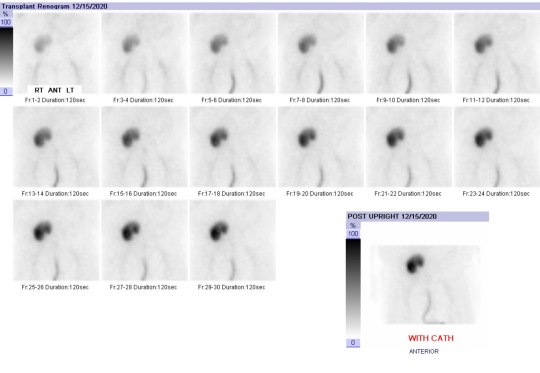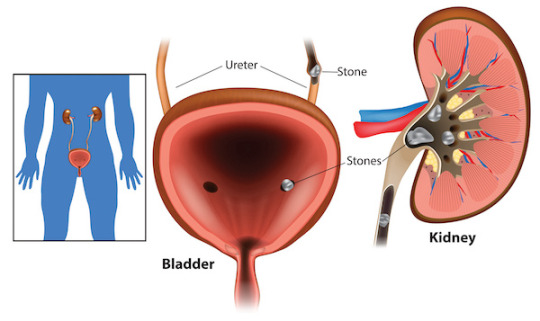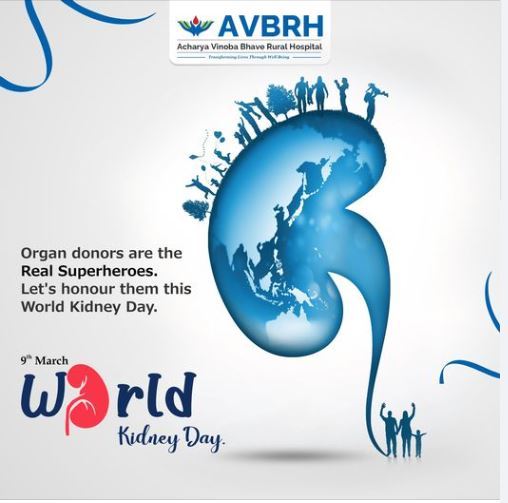#Kidneytransplant
Explore tagged Tumblr posts
Text

#KidneyHealth#KidneyDisease#ChronicKidneyDisease#KidneyAwareness#KidneySupport#Nephrology#Dialysis#KidneyCare#KidneyTransplant#KidneyWarrior#KidneyStones#KidneyPatients#KidneyLife#KidneyStoneRelief#KidneyWellness#KidneyStoneSymptoms#KidneyStonePrevention#KidneyStoneRemoval#MulshiSpecialityHospital#cashless#emergency#cashlesshospital#hospital#Pirangut#pune#Maharashtra#कॅशलेस
2 notes
·
View notes
Text

Ultrasound is the first imaging modality of choice for imaging transplant kidneys, which can evaluate vasculature and for the presence of hematoma or urinoma. A nuclear renogram can also be performed to assess graft function.
Today's case is a renogram of a patient 4 days post renal transplant with poor urine output. Ultrasound revealed elevated resistive indices. Renogram shows poor perfusion (early images with transplant similar to iliac blood pool), minimal excretion, and persistent cortical retention of tracer throughout the study. Findings may indicate severe ATN, renal artery stenosis, or transplant rejection. This case was likely severe ATN as there was no intervention and graft function recovered.
#TeachingRounds#FOAMEd#FOAMRAd#Radiology#nuclearmedicine#transplant#transplantimaging#transplantmedicine#renaltransplant#kidneytransplant#renogram
2 notes
·
View notes
Text

This Women’s Day as the mother donates a #kidney to her daughter in Acharya Vinoba Bhave Rural Hospital, Wardha
#AVBRH#hospita#Wardha#WorldKidneyDay#kidneydisease#kidney#kidneyhealth#kidneytransplant#kidneyhealthforall#healthiswealth#healthandwellness#heart#hearthealth
2 notes
·
View notes
Photo

"Kidney Connect Series: Your Daily Guide to Kidney Health!" "Day 20 (part 2) : What are the steps involved in a kidney transplant surgery?" Welcome to "Day 20 (part 2)" of our series! Follow daily for kidney health insights.
0 notes
Text
#DrVipinSisodia#DrDevendraKumarBabbar#kidneystone#symptoms#ProstaticHyperplasia#kidneydisease#kidneytransplant
0 notes
Text
instagram
#KidneyHealth#Nephrology#ShivamHospital#Dombivli#KidneyAwareness#Health#Dialysis#KidneyTransplant#KidneyCare#organdonation#kalyan#surgery#hospital#doctors#medicine#diagnosis#disease#healthcare#Instagram
0 notes
Link
Bishop James France, Mount Carmel Holiness Church, will be recognized at this Thursday's Board of Aldermen meeting for 60 years in the ministry, he recently retired. Update on Gabriel Patterson, his father, Madison Police Lieutenant Bryan Patterson gave him a kidney. Beachin' BBG celebration Downtown July 20th. Facebook.com/TownofMadison
0 notes
Video
youtube
Kidney transplant was a direct result of...
Interview footage taken from Roadz Of Life documentary
#youtube#dialysis#suffering#kidneytransplant#embarrassing#shareyourstory#interview#documentary#roadzoflife#film
1 note
·
View note
Text

Your Guide to Kidney Transplantation: Frequently Asked Questions Answered
Facing kidney failure can be overwhelming. Dialysis is a life-saving treatment, but a kidney transplant offers the potential for a return to a more normal life. If you're considering a transplant, you likely have questions. This guide explores some of the most frequently asked questions to empower you on your journey.
Can I live a full life with only one functioning kidney?
Absolutely! Healthy adults can live healthy lives with just one kidney. This is a common concern for potential living donors, and thorough medical evaluation ensures suitability before donation.
When is a kidney transplant recommended?
Kidney transplantation is typically considered for those with Chronic Kidney Disease (CKD) Stage 5, where both kidneys have lost function. Here, dialysis or transplant become necessary. Ideally, transplants happen before needing dialysis, leading to better outcomes.
Is there a perfect time for a transplant?
Transplantation is often recommended when kidney function falls below 50%. Early intervention, known as pre-emptive transplantation, can offer significant advantages compared to waiting for dialysis.
What's recovery like for the donor?
Donors undergo a recuperation period tailored to their individual needs. While there's an initial recovery phase, most donors can walk freely after discharge and return to normal activities following healing.
Is a kidney transplant better than dialysis?
Studies show that kidney transplant recipients often enjoy a longer lifespan and improved quality of life compared to those on dialysis. Transplants offer greater freedom and energy to live a fuller life.
This is just a starting point. There's more to explore!
This article has addressed some key questions, but there's a wealth of information available. To dive deeper and get answers to all your specific questions, visit this comprehensive resource:
Understanding Kidney Transplantation: Frequently Asked Questions
#kidneytransplant#kidneydisease#transplantation#organdonation#livingdonor#chronicillness#transplantlife#secondchance#kidneyhealth
0 notes
Text
5 Easy Ways to Prevent Kidney Stones
Kidney stones are hard mineral deposits that occur within the kidneys. They produce painful discomfort as they move through the urinary system. Up to 12% of Indians suffer from kidney stones. And once you've had a kidney stone, you're 50% more likely to have another within the next ten years. There is no definite method to avoid kidney stones, especially if you have a family history of the ailment. A combination of dietary and lifestyle modifications, as well as some medicines, may help lower your risk.

1. Stay hydrated:
Drinking more water is the most effective approach to prevent kidney stones. If you do not drink enough, your pee production will be reduced. Low urine flow indicates that your urine is more concentrated and less likely to dissolve urinary salts, which create stones. Lemonade and orange juice are other excellent choices. They both include citrate, which may help prevent stones from developing.
2. Consume more calcium-rich foods:
The most frequent form of kidney stone is calcium oxalate, thus many individuals feel they should avoid calcium. The reverse is true. Diets low in calcium may raise your chances of developing kidney stones and osteoporosis. Calcium pills, on the other hand, may raise your chance of developing stones. Taking calcium supplements after a meal may help to lessen the risk.
3. Eat less salt:
A high-salt diet raises the risk of calcium kidney stones. According to the urologists, too much salt in the urine inhibits calcium from being reabsorbed into the bloodstream. This generates elevated urine calcium levels, which can lead to kidney stones. Eating less salt helps to keep urinary calcium levels low. The lower the calcium level in urine, the lesser the chance of producing kidney stones.
4. Consume less oxalate-rich foods:
Some kidney stones are composed of oxalate, a naturally occurring chemical in meals that combines with calcium in the urine to produce kidney stones. Limiting oxalate-rich meals may assist to prevent stones from developing. Foods high in oxalates: These include spinach and chocolate Sweet potatoes Ingredients: coffee, beets, peanuts Rhubarb, soy products Wheat bran
5 Eat less animal protein:
Foods high in animal protein are acidic and may raise urine acidity. High urine acid levels might result in both uric acid and calcium oxalate kidney stones. Try to restrict or avoid:
beef poultry fish pork
0 notes
Text
0 notes
Text
0 notes
Text

World Kidney Day is celebrated every year on the second Thursday in March. This year will be observing the day on the 9th March. Acharya Vinoba Bhave Rural Hospital in Wardha
#AVBRH#hospita#Wardha#WorldKidneyDay#kidneydisease#kidney#kidneyhealth#kidneytransplant#kidneyhealthforall#healthiswealth#healthandwellness#heart#hearthealth
3 notes
·
View notes
Photo

"Kidney Connect Series: Your Daily Guide to Kidney Health!" "Day 20 (part 1) : What are the steps involved in a kidney transplant surgery?" Welcome to "Day 20 (part 1)" of our series! Follow daily for kidney health insights.
0 notes
Text
#DrVipinSisodia#DrDevendraKumarBabbar#kidneystone#symptoms#ProstaticHyperplasia#kidneydisease#kidneytransplant
0 notes